And we’ve made it to Z! The final ‘metaphor’ of God: King of Zion.
Each of these posts was inspired by a cross-stitch made by my Mum. The picture of the ‘z’ square shows: a crown of thorns (although in reality apparently the thorns were approximately 6 inches long!); the phrase ‘King of Zion’; and the verse Matthew 27:37. This verse reads:
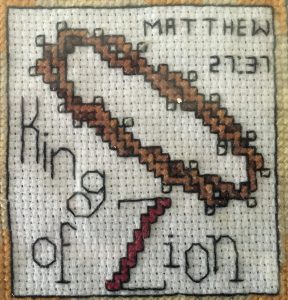
“A sign was fastened above Jesus’ head, announcing the charge against him. It read: “This is Jesus, the King of the Jews.”
Now you’ll notice that the word ‘Zion’ isn’t included. In fact, the word ‘Zion’ isn’t part of this verse in Matthew at all, in any version.
Rather, the designer of this cross-stitch pattern used this verse to emphasize Jesus’ kingship. The bit about ‘Zion’ comes from Psalm 2:6: “I have installed my king on Zion, my holy mountain.” And some translations use the word ‘Jerusalem’ instead of ‘Zion’ as well.
So what *is* Zion?
Well originally, it was a place. A fortress in fact, which David captured in 2 Samuel 5:7, and later built the royal palace there. His son, King Solomon, built the temple there too, and the word ‘Zion’ came to mean the whole temple area. Later in the Old Testament (as in, before Jesus’ birth) the word Zion is used to refer to the city of Jerusalem, the land of Judah, and even the nation of Israel as a whole.
In the New Testament (from the birth of Jesus onwards) the word Zion refers to God’s spiritual kingdom (See Hebrews 12:22 and 1 Peter 2:6).
So the Romans who were crucifying Jesus, and who then hung a sign above his head showing that his ‘crime’ was being ‘King of the Jews’, incensed the Jews watching the spectacle. John 19:19-22 records that the Chief Priests ask for the sign to be changed, from ‘Jesus, King of the Jews’ to ‘Jesus, who claimed to be King of the Jews’. Pilate (the Roman governor) refused.
And so Jesus, the King of the Israelite nation, was killed. His death was sought by the leaders of Israel; and sanctioned by the leader of the Gentiles (non-Jews).
And he died.
And yet, God had decided that He would install his King on Zion, on His holy mountain.
So Jesus didn’t stay dead. God raised him from death, thus conquering its hold on us, should we choose to believe in Him and follow Him.
Jesus, is now, and will remain forever, King of ‘Zion’: which is God’s spiritual kingdom.
And I’m a part of that kingdom, if I choose to be.
And I do!
So with that, we conclude the lessons for this month of April, and this, my first attempt at the annual #A-Zchallenge.
What a huge month it’s been!
Thank you to all those who’ve supported me along the way; your company and encouraging comments have truly made this journey a memorable one! I never would have realised how blessed this experience could be. Thank you!
So where to next? Well, back to my regularly scheduled once-a-week blog posts… for the month of May, at least. Who knows where after that; what with #blogJune an’ all…!
Anyway, time for me to stop rambling. Have a lovely day, dear reader – and thanks for stopping by!
May God richly bless you today 😀
— KRidwyn
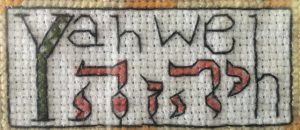 “And Elohim said to Moses, I AM THAT I AM; and He said, you shall say this to the sons of Israel, I AM has sent me to you. And Elohim said to Moses again, You shall say this to the sons of Israel,
“And Elohim said to Moses, I AM THAT I AM; and He said, you shall say this to the sons of Israel, I AM has sent me to you. And Elohim said to Moses again, You shall say this to the sons of Israel, 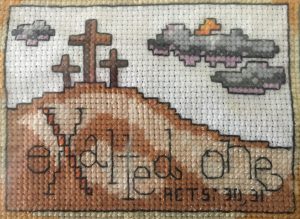

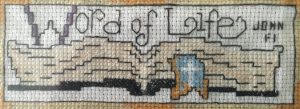 “In the beginning was the Word, and the Word was with God, and the Word was God.”
“In the beginning was the Word, and the Word was with God, and the Word was God.”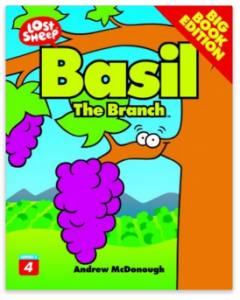 One of my son’s favourite books is
One of my son’s favourite books is 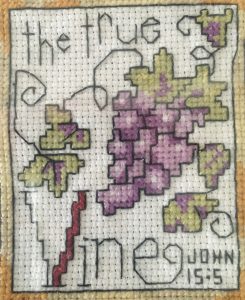 “Yes, I am the vine; you are the branches. Those who remain in me, and I in them, will produce much fruit. For apart from me you can do nothing.”
“Yes, I am the vine; you are the branches. Those who remain in me, and I in them, will produce much fruit. For apart from me you can do nothing.”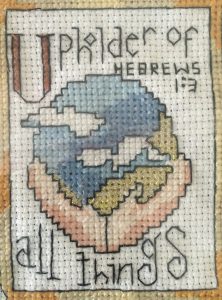 “Who being the brightness of his glory, and the express image of his person, and upholding all things by the word of his power, when he had by himself purged our sins, sat down on the right hand of the Majesty on high”.
“Who being the brightness of his glory, and the express image of his person, and upholding all things by the word of his power, when he had by himself purged our sins, sat down on the right hand of the Majesty on high”.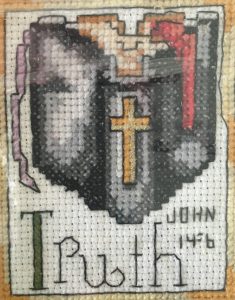 In the book of John, chapter 14 verse 6 says:
In the book of John, chapter 14 verse 6 says: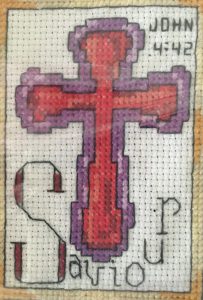
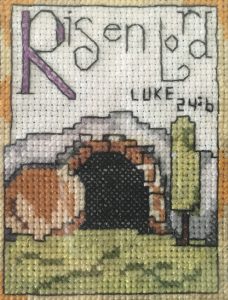 Luke 24:6 –
Luke 24:6 –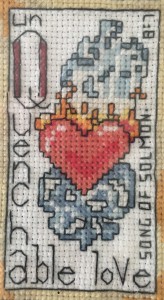 The verse also says “many waters cannot quench your love”. And that’s where the ‘Q’ comes from in today’s #AtoZchallenge: unQuenchable. That’s God’s love for us.
The verse also says “many waters cannot quench your love”. And that’s where the ‘Q’ comes from in today’s #AtoZchallenge: unQuenchable. That’s God’s love for us.